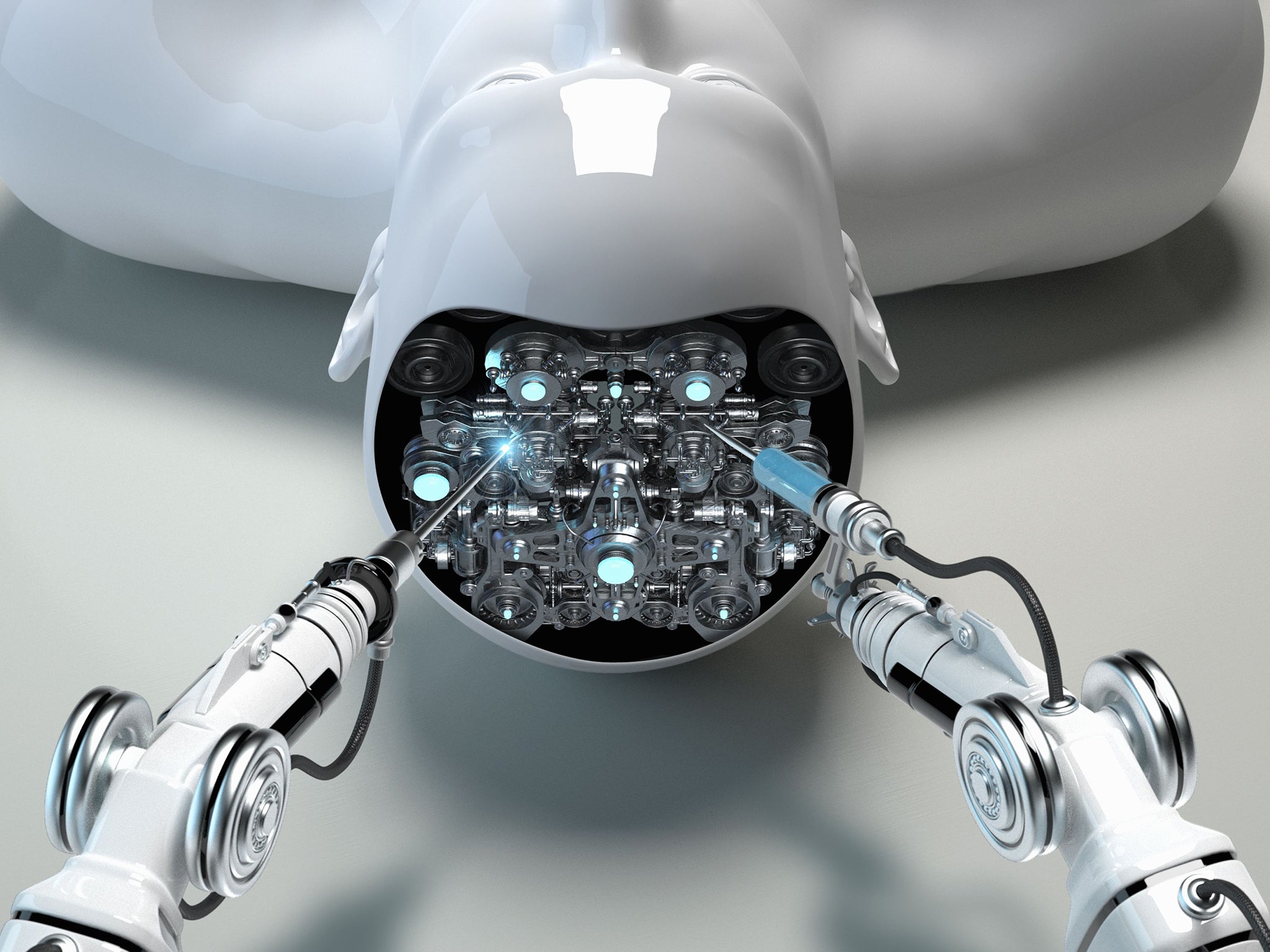Could we upload a brain to a computer – and should we even try?
The practical difficulties mean it couldn’t happen in the foreseeable future, but there are also some more fundamental problems with the whole concept, says Richard Jones

People have always dreamed about going beyond the limitations of their bodies: the pain, illness and, above all, death. Now a new movement is dressing up this ancient drive in new technological clothes. Referred to as transhumanism, it is the belief that science will provide a futuristic way for humans to evolve beyond their current physical forms and realise these dreams of transcendence.
Perhaps the most dramatic way transhumanists believe that technology will transform the human condition is the idea that someone’s mind could be converted into digital data and “uploaded” into an immensely powerful computer. This would allow you to live in a world of unbounded virtual experiences and effectively achieve immortality (as long as someone remembers to do the backups and doesn’t switch you off).
Yet transhumanists seem to ignore the fact that this kind of mind-uploading has some insurmountable obstacles. The practical difficulties mean it couldn’t happen in the foreseeable future, but there are also some more fundamental problems with the whole concept.
The idea of brain uploading is a staple of science fiction. The author and director of engineering at Google, Ray Kurzweil, has perhaps done the most to popularise the idea that it might become reality – perhaps as soon as 2045. Recently, the economist Robin Hanson has explored in detail the consequences of such a scenario for society and the economy. He imagines a world in which all work is carried out by disembodied emulations of human minds, running in simulations of virtual reality using city-size cloud computing facilities.
It’s a short step from the idea that our minds could be uploaded, to the notion that they already have been and that we are already living in a Matrix-style computer simulation. Technology entrepreneur Elon Musk recently revived this discussion by arguing the chance that we are not living in a computer simulation was only “one in billions”. Of course, this is just a technological revival of the idea that reality is an illusion, which has been discussed by philosophers and mystics for hundreds of years.
But there are some serious problems with the idea that we could upload our minds to a computer. To start with, the practical issue: our brains each have trillions of connections between 86 billion or so neurons. To replicate the mind digitally we would have to map each of these connections, something that is far beyond our current capabilities. With the current speed of development of computers and imaging technologies, we might be able to do this in a few decades but only for a dead and sectioned brain.
Yet even if we could create such a “wiring diagram” for a living brain, that wouldn’t be enough to understand how it operates. For that we’d need to quantify exactly how the neurons interact at each of the junctions, and that’s a matter of molecular-level detail. We don’t even know how many molecules are in the brain, let alone how many are vital for its functions, but whatever the answer it’s too many to replicate with a computer.
This points us towards a deeper conceptual difficulty. Just because we can simulate some aspects of the way the brain works, that doesn’t necessarily mean we are completely emulating a real brain, or indeed a mind. No conceivable increase in computer power will allow us to simulate the brain at the level of individual molecules. So brain emulation would only be possible if we could abstract its digital, logical operations from the messy molecular level detail.

To understand the operations of a man-made computer, we don’t need to keep track of the currents and voltages in every component, much less understand what every electron is doing. We’ve designed the switching operations of the transistors so there’s an unambiguous mapping from the state of the circuits to the simple digital logic of ones and zeros. But no-one designed a brain – it evolved – so there is no reason to expect any simple mapping of its operations to digital logic.
Even if mind uploading is an impossible dream, some might argue that it does no harm to imagine such possibilities. Everyone at some point must fear their own mortality, and who am I to argue with the many different ways people have of dealing with those fears?
But transhumanism’s mixing of essentially religious ideas with scientific language matters because it distorts the way we think about technology. Transhumanism tends to see technology as a way to grant all our wishes. And this is often justified by the argument that technology will inevitably drive human development in a positive direction.
Yet this distorts our scientific priorities and gets in the way of us making sensible choices about developing the technologies we need to solve our very real current problems. Brain uploading is a great premise for speculative fiction, but it’s not a good basis for talking about the future.
This article first appeared in The Conversation (theconversation.com). Richard Jones is pro-vice-chancellor for research and innovation at the University of Sheffield
Join our commenting forum
Join thought-provoking conversations, follow other Independent readers and see their replies
Comments
Bookmark popover
Removed from bookmarks